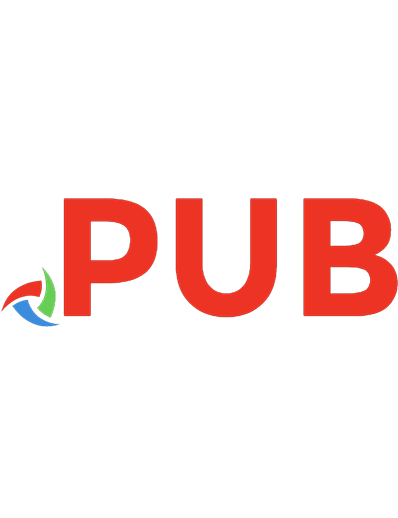Advanced Platform Development with Kubernetes: Enabling Data Management, the Internet of Things, Blockchain, and Machine Learning 9781484256107, 9781484256114
Leverage Kubernetes for the rapid adoption of emerging technologies. Kubernetes is the future of enterprise platform dev
997 214 10MB
English Pages 519 Year 2020
Table of contents :
Table of Contents
About the Author
About the Technical Reviewer
Acknowledgments
Chapter 1: Software Platform and the API
Software Applications vs. Software Platforms
Dependency Management and Encapsulation
Network of Applications
Application Platform
Platform Requirements
Platform Architecture
Platform Capabilities
IoT
Ingestion of Data
Edge Gateway
IoT OS
Blockchain
Private Managed Blockchains
Use Cases
Machine Learning
Automation and Management
Core Components
Configuration
Application Parameters
Ingress
Data Management
Metrics
APIs and Protocols
Summary
Chapter 2: DevOps Infrastructure
Cloud Computing
Cloud Native and Vendor Neutral
Redundancy
Portable Platforms
Getting Started Vendor Neutral
DevOps Toolchain
Repositories
Registries
CI/CD
GitLab for DevOps
k3s + GitLab
Server Setup
Configure DNS
Install k3s
Remote Access
Install Cert Manager/Let’s Encrypt
Install GitLab
Namespace
TLS Certificate
Services
ConfigMap
Deployment
Ingress
Disable Sign-up
Summary
Next Steps
Chapter 3: Development Environment
Custom Development Kubernetes Cluster
Nodes
Server Setup
Prepare Nodes
Install Dependencies
Install WireGuard VPN
Install Docker
Install Kubernetes Utilities
Install Master Node
Join Worker Nodes
DNS
Remote Access
Configuration
Repository
Ingress
TLS/HTTPS with Cert Manager
Persistent Volumes with Rook Ceph
Block Storage
Shared Filesystem
Monitoring
Summary
Chapter 4: In-Platform CI/CD
Development and Operations
Platform Integration
Yet Another Development Cluster
RBAC
GitLab Group Kubernetes Access
Configure Kubernetes Cluster Integration
Enable Dependencies
Custom JupyterLab Image
Repository and Container Source
Local Testing
Port-Forwarding
Test Notebook
Additional Learning
Automation
GitLab CI
.gitlab-ci.yml
Kaniko
Integrated Environment Variables
Running a Pipeline
Manual Testing in Kubernetes
Prepare Namespace
Run Notebook
Repository Access
GitOps
Summary
Chapter 5: Pipeline
Statefulness and Kubernetes
Real-Time Data Architecture
Message and Event Queues
Distributed Streaming Platform
MQTT and IoT
Development Environment
Cluster-Wide Configuration
Data Namespace
TLS Certificates
Basic Auth
Apache Zookeeper
Apache Kafka
Kafka Client Utility Pod
Mosquitto (MQTT)
Summary
Chapter 6: Indexing and Analytics
Search and Analytics
Data Science Environment
Development Environment
TLS Certificates
Basic Auth
ELK
Elasticsearch
Logstash
Kibana
Data Lab
Keycloak
Realm, Client, and User
Namespace
JupyterHub
JupyterLab
Kubernetes API
Kafka
Elasticsearch
Mosquitto (MQTT)
Summary
Chapter 7: Data Lakes
Data Processing Pipeline
Development Environment
Data Lake as Object Storage
MinIO Operator
MinIO Cluster
MinIO Client
MinIO Events
Process Objects
Configure Notifications
Event Notebook
Test Data
Containerized Application
Programmatic Deployments
Serverless Object Processing
Summary
Chapter 8: Data Warehouses
Data and Data Science
Data Platform
Development Environment
Data and Metadata Sources
MySQL
MySQL Operator
MySQL Cluster
Apache Cassandra
Cassandra Operator
Cassandra Cluster
Apache Hive
Containerization
Local Hive Testing
Modern Data Warehouse
Hive
Kubernetes Configuration
Test Data
Create Schema
Presto
Kubernetes Configuration
Query
Summary
Chapter 9: Routing and Transformation
ETL and Data Processing
Development Environment
Serverless
OpenFaaS
Install OpenFaaS
Install Sentiment Analysis
ETL
Apache NiFi
Install Apache NiFi
Example ETL Data Pipeline
NiFi Template
Prepare Elasticsearch
Dataflow
Analysis and Programmatic Control
Analysis and Visualization
Programming NiFi
Summary
Chapter 10: Platforming Blockchain
Private Blockchain Platform
Development Environment
Private Ethereum Network
Bootnodes
Bootnode Registrar
Ethstats
Geth Miners
Geth Transaction Nodes
Private Networks
Blockchain Interaction
Geth Attach
Jupyter Environment
Serverless/OpenFaaS
Summary
Chapter 11: Platforming AIML
Data
Hybrid Infrastructure
Development Environment
DNS
k3s Hybrid Cloud
Kilo VPN
Master Node
Worker Nodes
On-premises
GPU
GPU/CUDA
Install Ubuntu
NVIDIA GPU Support
k3s with NVIDIA Runtime
IoT / Raspberry Pi
Raspberry Pi OS
WireGuard
k3s on Raspberry Pi
Node Roles
Install Kilo
Platform Applications
Data Collection
MQTT IoT Client
ETL
Apache NiFi
Python CronJob
Machine Learning Automation
Jupyter Notebook GPU Support
CUDA Data Science Container
JupyterHub Spawner Options
Model Development
MLflow
Installation
Tracking Models
Deploy Artificial Intelligence
Seldon Core
Summary
Index


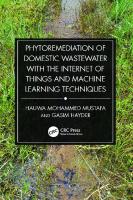

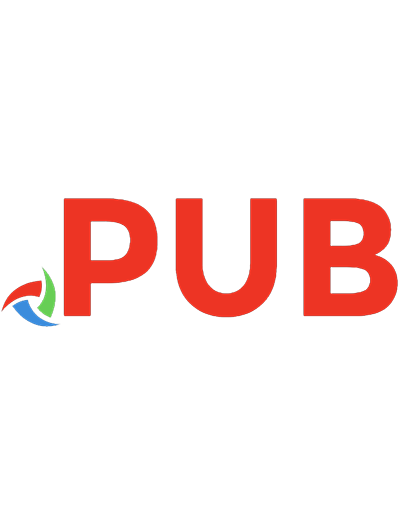

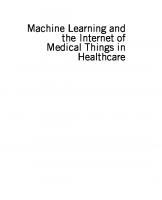
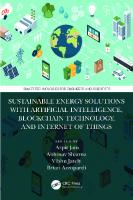
![Deploy Machine Learning Models to Production: With Flask, Streamlit, Docker, and Kubernetes on Google Cloud Platform [1st ed.]
9781484265451, 9781484265468](https://dokumen.pub/img/200x200/deploy-machine-learning-models-to-production-with-flask-streamlit-docker-and-kubernetes-on-google-cloud-platform-1st-ed-9781484265451-9781484265468.jpg)
